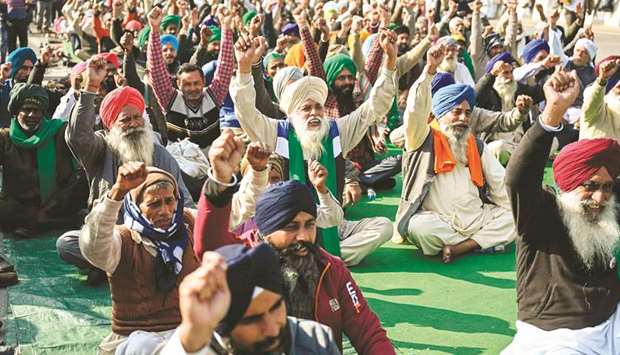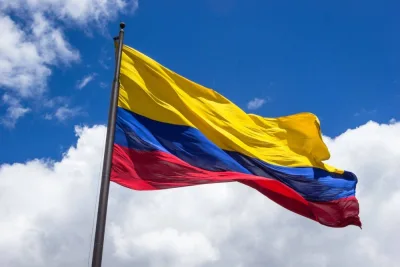India’s Supreme Court yesterday criticised the government for failing to break a deadlock with farmers protesting against reforms of the agricultural sector.
Tens of thousands of farmers have been camped on the outskirts of the capital, New Delhi, for more than a month, and have promised to march during Republic Day celebrations on Jan 26, against what they see as laws benefiting large private buyers at the expense of producers.
Chief Justice Sharad Arvind Bobde said in a hearing yesterday the drawn-out confrontation was causing distress to farmers.
“We are extremely disappointed at the way government is handling all this,” Bobde said.
“We don’t know what consultative process you followed before the laws. Many states are up in rebellion.”
He repeated a suggestion that the government pause the legislation while farmers’ concerns are heard and said the court would pass orders if the two sides remained at an impasse.
The government of Prime Minister Narendra Modi says the legislation is aimed at modernising an antiquated agricultural system, which suffers from colossal wastage and bottlenecks in the supply chain.
But farm leaders say the laws are an attempt to erode a longstanding minimum support price for their crops and they want a full repeal of the laws.
The government has said there was “no question” of this happening, and eight rounds of talks have failed to find common ground.
The two sides are set to next meet on Friday.
RULING ON
PETITIONS TODAY
The Supreme Court will today pronounce its order on a bunch of petitions opposing the three farm laws and also the petitions seeking removal of the protesters from various Delhi borders, IANS reported.
A bench headed by Chief Justice S A Bobde and comprising Justices A S Bopanna and V Ramasubramanian said: “List these matters tomorrow i.e. 12.01.2021, for orders.”
In a detailed hearing, which lasted close to two hours, yesterday, Bobde repeatedly questioned the Centre’s counsel — Attorney General K K Venugopal and Solicitor General Tushar Mehta — why are they insisting on the implementation of the law.
“We are not experts on economy... you tell us whether you are going to hold these laws or should we do it,” the bench told the Centre.
The Chief Justice categorically cited the Centre hasn’t communicated to it on the proposal to keep the implementation of these laws at abeyance for some time.
The AG argued that the laws cannot be stayed unless they violate the constitutional schemes or fundamental rights, and this needs a detailed hearing. “Can be stayed if the government had no legislative competence, but that is not the case here,” he argued. The Chief Justice replied the Union of India has failed to take responsibility and the laws have resulted in a strike.
As the AG reiterated laws cannot be stayed, the bench replied the Centre has failed to stop the agitation and the problem continues to remain unresolved.
The top court observed the talks between farmers and the Centre have failed to make any headway, as the former wants laws to be repealed and the latter wants point by point discussion.
Citing its stay on the Maharashtra law granting reservation to Marathas in job and education, the bench, however, said it is against the stay on any laws.
Reiterating its earlier proposal to constitute a court-appointed committee, which could be headed by a former Chief Justice of India to resolve the impasse, the top court asked the parties to suggest two-three names of former Chief Justices including former Chief Justice R M Lodha who can head this panel. Chief Justice Bobde disclosed that he had asked former Chief Justice P Sathasivam but he was not inclined as he doesn’t understand Hindi.

Farmers shout slogans as they sit along a blocked highway during a protest against the central government’s recent agricultural reforms at the Delhi-Uttar Pradesh state border, yesterday.


